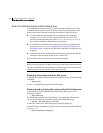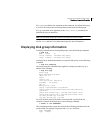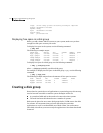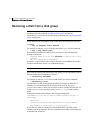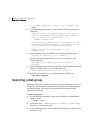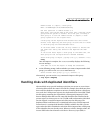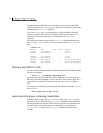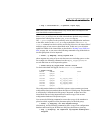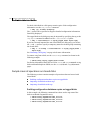
171Creating and administering disk groups
Adding a disk to a disk group
A disk group must have at least one disk associated with it. A new disk group can
be created when you use menu item 1 (Add or initialize one or more
disks) of the vxdiskadm command to add disks to VxVM control, as described
in “Adding a disk to VxVM” on page 97. The disks to be added to a disk group
must not belong to an existing disk group.
You can also use the vxdiskadd command to create a new disk group:
# vxdiskadd c1t0d0
where c1t0d0 in this example is the device name of a disk that is not currently
assigned to a disk group. The command dialog is similar to that described for the
vxdiskadm command in “Adding a disk to VxVM” on page 97.
Disk groups can also be created by using the vxdg init command:
# vxdg init diskgroup [cds=on|off] diskname=devicename
For example, to create a disk group named mktdg on device c1t0d0:
# vxdg init mktdg mktdg01=c1t0d0
The disk specified by the device name, c1t0d0, must have been previously
initialized with vxdiskadd or vxdiskadm, and must not currently belong to a
disk group.
You can use the cds attribute with the
vxdg init command to specify whether a
new disk group is compatible with the Cross-platform Data Sharing (CDS)
feature. In Veritas Volume Manager 4.0 and later releases, newly created disk
groups are compatible with CDS by default (equivalent to specifying cds=on). If
you want to change this behavior, edit the file /etc/default/vxdg, and set
the attribute-value pair cds=off in this file before creating a new disk group.
Alternatively, you can use the following command to set this attribute for a disk
group:
# vxdg -g diskgroup set cds=on|off
Adding a disk to a disk group
To add a disk to an existing disk group, use menu item 1 (Add or
initialize one or more disks) of the vxdiskadm command. For details
of this procedure, see “Adding a disk to VxVM” on page 97.
You can also use the vxdiskadd command to add a disk to a disk group, for
example:
# vxdiskadd c1t1d0
where c1t1d0 is the device name of a disk that is not currently assigned to a
disk group. The command dialog is similar to that described for the vxdiskadm
command in “Adding a disk to VxVM” on page 97.








